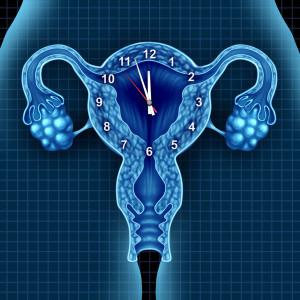The Tick Tock of Your Biological Clock
 How Much Time Do You Really Have to Get Pregnant?
How Much Time Do You Really Have to Get Pregnant?
When asked “where do you see yourself after you graduate college?” many young women confidently reply by reciting a heavily considered, regimented life plan:
“I’m going to land my dream job by 22, get engaged to the man of my dreams by 25, we’ll move in together at 26, we’ll get engaged by 27, and get married by 29. By 30 I’ll have become a senior executive in my company, and my husband and I will have three kids before I’m 35, a boy, and two girls, in that order.”
While it may sound like a quintessential and highly responsible plan, the reality is that life sometimes takes us by surprise, leaving us making modifications to our “final” plan along the way. For women whose unexpected life events result in a delay in childbearing, many report that they begin to feel the metaphorical ticking of their biological clock – an internal feeling of foreboding that they need to have a baby soon “before it’s too late.” What is this feeling that we associate with a ticking clock? At what age do women really begin to lose fertility, and what steps should women who want to have a baby take to ensure the highest likelihood for conception?
The term “biological clock” often refers to a woman’s increased maternal instincts as they age and worry that they will soon be too old to successfully naturally conceive. There is debate as to whether the ticking clock is a true physical and psychological response, or a socialized experience.
What is a known fact, however, is that as women age, their fertility levels decrease. In general, the best age for women to get pregnant and carry a healthy baby to term is between the ages of 20 and 35. Once women enter their 40s, as many as 40 percent of pregnancies end in miscarriage, and by the time they reach 45, only ten percent of women are able to conceive naturally. This statistic is a concern to many women today, as the number of older mothers is rising as women prioritize education and career before having children. In 1999, only 16 percent of new mothers were over age 35. By 2008, that number had increased to 23 percent.
Women who want to conceive may be able to look to their family history to determine the longevity of their fertility. If a woman’s mother or grandmother was able to conceive naturally into her late thirties and forties, she may be able to as well. Women should also avoid smoking, excess alcohol and recreational drug use, as all of these can negatively impact egg quality. Women who want to conceive should also maintain a healthy diet, and should lead an active lifestyle to ensure a healthy weight, to minimize the chances of miscarriage.
For women with questions or concerns regarding their fertility, their best bet, is to speak to their physician. Simple tests can determine a woman’s fertility, and a doctor can provide options for increasing the likelihood of conception as well as maintaining a healthy pregnancy. If you are looking for a top Ob-gyn practice in Western New York, please give Chouchani, Sayegh and Bagnarello MD a call today. We are accepting new patients.
More